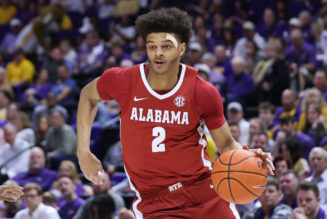
LONDON – Glastonbury Festival lost £3.1 million ($4.2 million) last year when it cancelled the event for a second consecutive summer because of the COVID-19 pandemic, according to the company’s latest financial results.
Accounts filed with Companies House, the U.K.’s registrar of businesses, reveal that in the year ended March 31, 2021, turnover fell to £936,000 ($1.3 million), down from £45 million ($61 million) in the previous financial year.
The total operating loss of just over £3.1 million for 2021, which followed a loss of £358,780 ($487,600) in 2020, is understood to be a record drop for the 52-year-old festival. But Glastonbury said it was able to cover the losses with profits retained from previous years.
Paul McCartney, Kendrick Lamar and Taylor Swift had been due to headline the world-famous green-field festival in 2020 before it became one of the first major European festival casualties of the coronavirus pandemic.
Last year’s three-day event was also pulled, with organizers instead holding a ticketed live stream event, Live At Worthy Farm, featuring performances from Coldplay, Damon Albarn and Idles. The privately owned company also diversified by running a family campsite, Worthy Pastures, on the festival site.
Other major festivals have also started to report huge losses, including Belgium’s Tomorrowland, one of the world’s biggest dance-music event companies, which said it will likely lose 25 million euros ($29 million) from two years of canceled events. To try to recoup some of the losses, Tomorrowland said it is looking to expand to three weekends this summer, from its normal two.
This year’s Glastonbury Festival, which normally hosts up to 200,000 people, is scheduled to take place at its regular home of Worthy Farm, outside the village of Pilton in Somerset, June 22-26. Billie Eilish is the only headline act announced so far. Diana Ross is booked to play the festival’s famous Sunday “legends” teatime spot.
The event is fully sold out, with ticket buyers’ deposits for 2020 having rolled over for a second year, following the festival’s cancellation in 2021. (The majority of ticket monies are held in a retention account, which is released after the festival has taken place.)
Looking ahead to this year’s return, the financial report cautions there are likely to be “significant costs specifically related to necessary COVID-19 measures and related issues.”
Last April, Glastonbury Festival received £900,000 ($1.2 million) from the Government as part of its Culture Recovery Fund. At the time, co-organizers Michael and Emily Eavis said the money would make a “huge difference” in helping to secure the festival’s future. In November it received a further £600,000 (£815,000) from the government support package.
Despite the colossal financial hit caused by the pandemic, the historic festival retains sizable cash reserves of £8.3 million ($11.2 million) — “cash at bank or in hand” — as of March 31, down from £12.2 million ($16.6 million) the previous year, according to the Companies House financial report.
Glastonbury also still managed to make charitable donations of just under £5,000 ($7,000) in 2021, down from £1.1 million ($1.5 million) it gave to charity the previous year.
Going forward, the company directors state, the festival will look to build up its reserve float “once more for the future.”
[flexi-common-toolbar] [flexi-form class=”flexi_form_style” title=”Submit to Flexi” name=”my_form” ajax=”true”][flexi-form-tag type=”post_title” class=”fl-input” title=”Title” value=”” required=”true”][flexi-form-tag type=”category” title=”Select category”][flexi-form-tag type=”tag” title=”Insert tag”][flexi-form-tag type=”article” class=”fl-textarea” title=”Description” ][flexi-form-tag type=”file” title=”Select file” required=”true”][flexi-form-tag type=”submit” name=”submit” value=”Submit Now”] [/flexi-form]










Tagged: business, entertainment blog, festivals, International, music blog, Touring